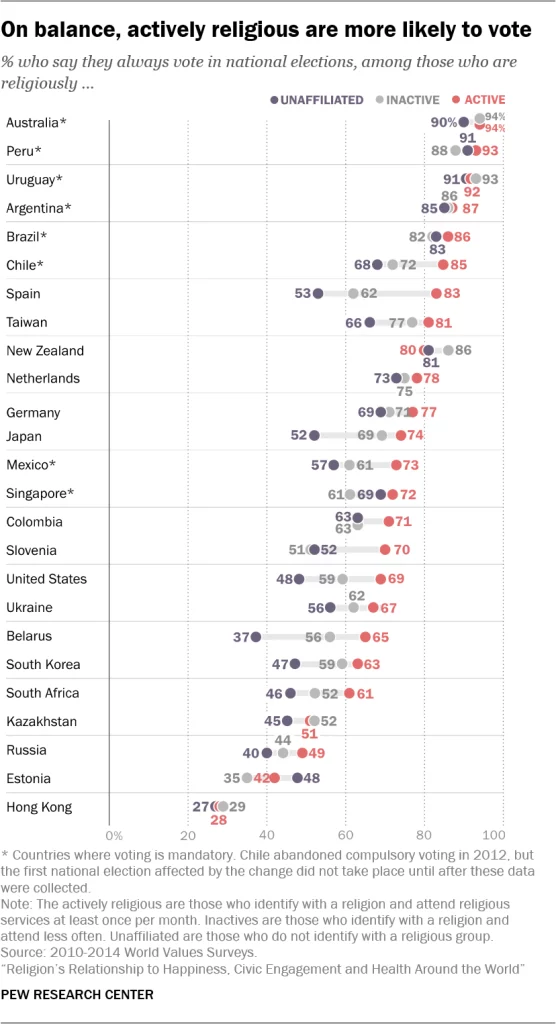US Conservatives have strong connections to their religion, particularly in Evangelicalism. This deep faith actually helps the right pass certain policies, like restricting abortion, and banning certain books from being taught in schools. I argue that the left’s tendency to avoid religion and lean towards atheism actually hinders their ability to unify and enact change. Meanwhile, it’s actually those who are religious who are able to unify their party. Even though Democrats might think having a Democratic president (Joe Biden) means that they are succeeding as a party, the Republican party actually has a distinct unity that that Democrats can’t achieve. The Republicans have an advantage when they fall back on their faith. Democrats believe they have values, but don’t have religion or spirituality to support them. Spirituality might be the best bet for unreligious liberals.


The old Civil Rights movement was animated by a strong connection to Christian morality and ethics, to the point where its most famous leader was himself a Christian minister. But the contemporary movement against racism and other forms of injustice is conspicuously secular. Many protests have been characterized by proud antinomianism and the showcasing of new forms of eros and sexuality as a means of challenging the status quo.
Murtaza Hussain, How the Death of Faith will hurt the left
Modern liberals who are religious, in a white, heteronormative and conventional sense struggle to live their values, even within the church.
In her paper, Liberal Churches and Social Justice Movements: Analyzing the Limits of Inclusivity, Professor Laura M. Krull argues that:
“Conservative Protestants have been successful in communicating their religious voice in the public sphere, while liberal Protestants have struggled to articulate a distinctly liberal, religious voice. In this article, I show that a major component of liberal Protestant identity—inclusivity—itself constitutes a fundamental barrier to developing that voice.”
I don’t believe I will ever hear in this church, if you’re a Republican or a Democrat (laughs). And I mean that! We say it jokingly, but I do feel like if there’s one weakness it’s that there’s um, you know, we say we’re open to everybody… [but] it is an insular community where people think everybody thinks the same way.
Sarah, a woman in her late 50s that attends dogwood church, a “progressive church” dedicated to “economic and social justice”
Conservatives believe that they are faithful to the American idea and that liberals are betraying it—but liberals believe, with equal certitude, that they are faithful to the American idea and that conservatives are betraying it. Without the common ground produced by a shared external enemy, as America had during the Cold War and briefly after the September 11 attacks, mutual antipathy grows, and each side becomes less intelligible to the other. Too often, the most bitter divides are those within families
shadi Hamid, America without God, The Atlantic, 2021